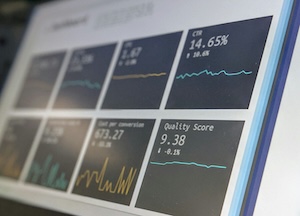Demand for Sustainable Products is Transforming the CPG Industry

In recent years, sustainability has emerged as a significant concern among consumers, profoundly impacting the consumer packaged goods (CPG) industry. Consumers are consciously choosing to support products and brands that align with their sustainability values. As the average consumer becomes more aware and concerned about their environmental footprint, the demand for sustainable products will continue to grow.
This presents an opportunity for companies to become sustainable leaders in the CPG industry and reap benefits such as an enhanced brand image, increased sales, and reduced operational costs. Impending regulation may force companies to comply with environmental standards in the near future. Implementing changes now will not only provide companies a competitive edge and access to current incentives, but also help avoid future regulatory fines and repercussions.
The Rise of Environmentally Conscious Consumers
A PDI Technologies study found 80% of consumers are very or somewhat concerned about the environmental impact of the products they buy. Furthermore, products that are marketed as sustainable grew 2.7 times faster than those that were not, and delivered one third of all CPG growth according to a study by NYU.
Consumers are choosing products that align with their values and putting their money where their mouths are. Personal care products, including shampoos, soaps, lotions, and cosmetics, are often scrutinized for containing harmful ingredients and packaging. Consumers are looking for alternatives that minimize environmental impact, such as products that use natural ingredients and recyclable packaging.
Prioritizing Sustainability: Opportunities & Benefits
Data Collection and Environmental Impact
Collecting accurate and comprehensive data is crucial for understanding a product or company’s environmental impact. Performing Life Cycle Assessments (LCAs) is one tool to help a company understand the environmental impact of a product at every stage from resource extraction to end of life. Analyzing ingredients, supply chains, and operations allows companies to identify opportunities for impactful actions.
Resource Efficiency and Operation Costs
Enhancing resource efficiency can significantly lower operational costs and boost resiliency. Stakeholders prioritize companies that demonstrate longevity, and reducing dependence on finite resources fosters such resilience. By minimizing the materials used in products or packaging, or by incorporating post-consumer recycled goods, companies can reduce the need for raw material extraction and processing. Additionally, optimizing packaging or product size can save space, thereby improving transportation efficiency. Overall, increasing resource efficiency can lead to substantial reductions in sourcing, processing, transportation, and other operating costs, yielding positive financial impacts.
Transparency and Brand Loyalty
The rise of greenwashing can lead to consumer distrust in products and brands, driving away sales. Concern over greenwashing is being addressed by anti-greenwashing regulations requiring companies to substantiate their claims. Achieving legitimate certification can guide sustainable actions for companies and provide recognition to customers seeking sustainable products. Companies that are transparent about their environmental impact and the actions they are taking to reduce their impact may increase consumer trust, leading to customer attraction and retention.
Infrastructure and Consumer Behavior
Customers may not have access to infrastructure that allows them to use or dispose of a product in the most sustainable way. For example, recycling rates and composting rates vary locally to nationally, with some places lacking these services entirely. Utilizing compostable packaging is a moot point if consumers don’t have a way to compost it. However, if recycling facilities are available, using recyclable materials is favorable. Companies can educate consumers on a company’s decision to use certain materials as well as provide guidance on proper use and disposal to yield the most environmentally friendly results for the product.
Conclusion
The growing consumer concern for sustainable products is reshaping the CPG industry. As consumers become more environmentally aware, they drive demand for products that are not only effective but environmentally responsible too. This shift presents opportunities for companies to meet these demands or risk being left behind. Taking advantage of the current market and industry supply can position companies as sustainable leaders, giving them a competitive advantage.
By prioritizing sustainability, companies can meet consumer expectations and contribute to a healthier, more sustainable world. Aligning business goals with environmental stewardship is key to the future success of the CPG industry.
At CarbonBright, we specialize in developing innovative solutions that enable organizations to conduct Life Cycle Assessments (LCAs), quantify their emissions, and meet stringent regulatory requirements. By partnering with CarbonBright, organizations can achieve a more efficient and cost-effective solution compared to traditional methods. Our scientifically-based approach, aligned with industry standards, ensures accurate and credible results that support your journey towards sustainability and compliance with emerging climate action standards.Contact us to learn more about how we can help you accelerate your sustainability journey and meet the complex requirements of Life Cycle Assessments (LCAs).



